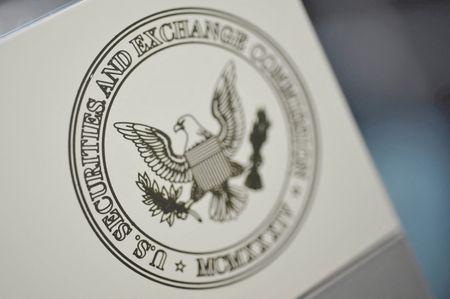By John McCrank
NEW YORK (Reuters) – The mutual fund industry is warning the U.S. Securities and Exchange Commission that new proposed rules aimed at better preparing open-end funds to weather distressed market conditions would harm investors saving for retirement.
A November proposal from the SEC would require mutual funds, and some exchange-traded funds, to ensure that at least 10% of their net assets are highly liquid. It would also require a hard daily close of 4 p.m. Eastern time for mutual funds, and the use of “swing pricing.”
Such pricing, which involves adjusting a fund’s value in line with trading activity so redeeming investors bear the costs of exiting without diluting remaining investors, is an attempt to prevent liquidity issues during market disruptions, such as at the beginning of the pandemic, when many investors tried to exit funds at the same time.
SEC Chairman Gary Gensler argued at the time the tweaks would ensure such funds are resilient and protect investors.
But industry groups and fund managers criticized the proposal in public comments, describing them as misguided and harmful.
“The SEC’s liquidity, swing pricing, and hard close proposal would seriously harm the more than 100 million Americans who use mutual funds to invest for their financial future,” said Eric Pan, chief executive officer of the Investment Company Institute, an industry group.
The proposal also does not accurately reflect key characteristics of fixed income investments, many of which rarely trade, said Emmanuel Roman, CEO of PIMCO, which had around $1.74 trillion in assets under management at the end of last year.
The plan to require swing pricing presents “overwhelming” operational challenges, said Rick Wurster, president of Charles Schwab Corp, and could decrease transparency for investors, who would not know whether it was being applied until after their transaction request.
The hard close creates several problems, including for shareholders who own funds through defined contribution plans, which are not able to send in orders by 4 p.m. and may be stuck with the next day’s price for their orders, independent trustees of Fidelity’s equity and high income and fixed income allocation funds said in a letter.
The rules could push such plans to move assets to less restrictive financial products, such as collective investment trusts that do not have the same oversight as mutual funds, they said.
“This risks reducing protections for investors in general, increasing costs to fund shareholders that remain in registered open-end funds, adversely affecting investor choices and investment outcomes, and generally harming the best interests of tens of millions of fund investors,” they said.
(Reporting by John McCrank in New York; Editing by Pete Schroeder and Matthew Lewis)

